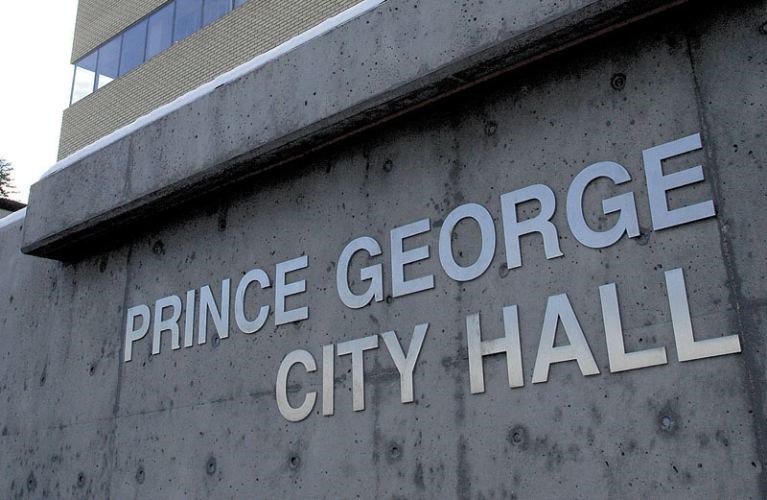The fluoride debate flooded city hall Monday night, with both sides of the issue making their case as the current city council wrapped up its term.
The issue of whether the community supports the continued fluoridation of the city's drinking water will be put to a referendum on the Nov. 15 local election ballot.
Council members chose not to engage in any debate with either presentation or provide questions or comments.
First to address the group was the newly formed coalition urging the community to keep the water as is.
Say Yes to Keep Prince George Water Fluoridation is comprised of members of local and provincial dental and dental hygienist societies, Northern Health and UNBC.
Calling a yes vote a "win-win situation," Northern Health's medical health officer Dr. William Osei told council that "water fluoridation is extremely cost effective and safe. Everyone benefits from fluoridation, especially children and those with low incomes."
Fluoride is naturally occurring, said Margit Strobl, a dental hygienist and CNC instructor. The fluoride that is chemically added to drinking water is also an easier method to prevent and reverse tooth decay.
Other methods cost more and require a conscious decision, she said.
"For example, think about how often you floss. Never? Once a week? Once a day?" asked Strobl. "As an oral health professional, I recommend that you floss once a day. But it has to be a conscious decision on your part to be able to do it on a regular basis."
Based on the recommendation by KMPG through the core services review to save money by shutting off the fluoride injection system, the city has said it costs $56,100 per year to fluoridate the water, which the coalition said is less than $1 per year, per person.
It costs residents in the Northern Health Authority between $1.8 and $2 million to treat dental problems, the majority of which are in young children, said Strobl.
"We know fluoridation is not a silver bullet, but it does help to reduce the risk of tooth decay," Strobl said.
The concept of fluoridation as responsible for a decline in tooth decay is false, said representatives of the side opposed to keeping fluoridated water.
"More and more people in the community are becoming aware of the issue and the fact that fluoridation is really something that is outdated. Ninety-seven per cent of B.C. is fluoride-free," said Dave Fuller. "It's an issue where you can't control the dose, so it's an ethical issue. You don't know how much fluoride you're getting in each glass of water and Northern Health can't tell us that."
Continuing to fluoridate the water isn't a scientific decision, said Jo Graber, but rather a political one. And if nature "thought of it first," he said, referencing the presentation material provided by the pro-fluoride side, "what we've decided is nature doesn't do its job."
Graber also cited a 25 per cent gap between the provincial average of cavity-free kindergarten-aged children and the average number in the Northern Health Authority's region.
"We should be doing better if you believe in the fluoride fallacy," Graber said.
Information on both sides of the debate can be found at NorthernHealth.ca and NoFluoride.ca.



